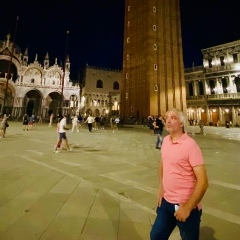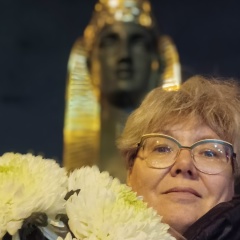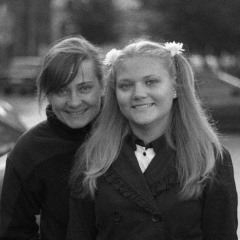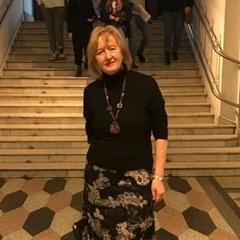Из интервью директора "Исаакиевского собора" Н. Бурова:
В ГАЛОШАХ В РОДИЛЬНОЕ ОТДЕЛЕНИЕ
Исаакий можно смело называть яблоком раздора. Который месяц сторонники и противники передачи собора Русской Православной Церкви находятся в состоянии активной конфронтации ― одни требуют, другие увещевают. А меж этих двух огней ― директор Государственного музея-памятника «Исаакиевский собор» Николай Буров. Его положению сейчас завидует разве что безумец. «Утро Петербурга» решило узнать, что беспокоит больше всего Николая Витальевича в сложившихся обстоятельствах и каковы его прогнозы. Разговор получился не только о судьбе собора, но и о маятнике Фуко, СССР, ленинградцах и матерных монологах
"Я благодарен петербуржцам: они не равнодушны к вопросу, а значит, дело не только в камнях и кирпичах, не только в рублях и копейках. Вопрос шире. Это один из символов Петербурга.
Общественная палата выражала свое отрицательное мнение по этому вопросу в 2015 году, ясно и определенно. Почетные граждане города выражали свое отношение в 2016 году, ясно и определенно.
Но ЗАКС последнего созыва почти единодушно выражает обратное мнение. ЗАКС не скупится на оскорбления, за которые обычно пощечину дают.
Такая позиция законотворческой власти города тоже, наверное, имеет значение. Но мы живем в подзаконном пространстве, и надо выполнять эти самые законы. Не только один, но весь комплекс законов, существующих и регламентирующих ту или иную деятельность.
Кроме закона 2010 года, есть закон о музейном фонде, целый ряд законов, касающихся предметов под охранным обязательством...
Надо подходить к вопросу профессионально. Даже если отбросить эмоции и с абсолютно холодным носом размышлять на эту тему, она все равно предполагает большое количество последовательных действий, которые законотворцы предлагают похерить и двигаться кратчайшим путем. Кратчайший, если он согласуется с существующими законами, ― это блестяще. А если не согласуется?"
Я сторонник того, чтобы общество было консолидировано любовью, а не раздрызгано ненавистью. Кто-то из самых лучших побуждений очень часто делает очередную глупость и вызывает раскол в обществе. Это самое страшное. Кто-то, желая угодить начальству, вдруг становится настоящим врагом народа ― вредит и делу, и почитаемому руководству до самого его верха. И церковь точно так же может наносить сама себе раны.
Здесь я достаточно внимательно слежу за рассуждением диакона Кураева, потому что вижу там много разумного. Я не со всем согласен, но это не мешает мне с уважением относиться к мнению оппонента. Когда перестаешь слышать оппонента, когда не хочешь этого делать, тогда не о чем говорить. Не будет диалога ― будет матерный монолог. Вот я все чаще слышу матерный монолог. Я сам владею виртуозно матом, но я знаю, где это уместно, а где ― совсем неуместно. В диалоге это неуместно.
У нас были блестящие отношения с епархией до последнего дня митрополита Владимира....Слава Богу, он жив, в ясной памяти, здоров, насколько возможно. Я его просто обожал. Это один из лучших церковных дипломатов. Я очень любил его проповеди за их безыскусность: они просты, как хлеб и вода. Но без них жить невозможно.
Напряглись отношения с приходом новой команды. Это ребята, которые смотрят на город немножко иначе, чем здесь принято. Некоторые из них, не успев вытереть ноги на пороге, вломились в галошах в родильное отделение.
А здесь принято задержаться у порога, заглянуть и попытаться понять, а что же там — в этом стерильном блоке.
Я не хочу обожествлять этот город, но я не позволю его демонизировать. Это великий город. Здесь есть свои ментальные правила. Если человек, входящий сюда, не хочет с ними даже познакомиться, значит либо город отторгнет его, либо он нанесет городу непоправимый урон.Непоправимый, потому что главное — это люди.
Я большую часть жизни назывался ленинградцем, и видел, как меня встре- чают по всей стране и даже за ее предела- ми. «Ленинградец» было особенное слово. И сегодня взять и низвести Петербург до положения рядового миллионника...
В ГАЛОШАХ В РОДИЛЬНОЕ ОТДЕЛЕНИЕ
Исаакий можно смело называть яблоком раздора. Который месяц сторонники и противники передачи собора Русской Православной Церкви находятся в состоянии активной конфронтации ― одни требуют, другие увещевают. А меж этих двух огней ― директор Государственного музея-памятника «Исаакиевский собор» Николай Буров. Его положению сейчас завидует разве что безумец. «Утро Петербурга» решило узнать, что беспокоит больше всего Николая Витальевича в сложившихся обстоятельствах и каковы его прогнозы. Разговор получился не только о судьбе собора, но и о маятнике Фуко, СССР, ленинградцах и матерных монологах
"Я благодарен петербуржцам: они не равнодушны к вопросу, а значит, дело не только в камнях и кирпичах, не только в рублях и копейках. Вопрос шире. Это один из символов Петербурга.
Общественная палата выражала свое отрицательное мнение по этому вопросу в 2015 году, ясно и определенно. Почетные граждане города выражали свое отношение в 2016 году, ясно и определенно.
Но ЗАКС последнего созыва почти единодушно выражает обратное мнение. ЗАКС не скупится на оскорбления, за которые обычно пощечину дают.
Такая позиция законотворческой власти города тоже, наверное, имеет значение. Но мы живем в подзаконном пространстве, и надо выполнять эти самые законы. Не только один, но весь комплекс законов, существующих и регламентирующих ту или иную деятельность.
Кроме закона 2010 года, есть закон о музейном фонде, целый ряд законов, касающихся предметов под охранным обязательством...
Надо подходить к вопросу профессионально. Даже если отбросить эмоции и с абсолютно холодным носом размышлять на эту тему, она все равно предполагает большое количество последовательных действий, которые законотворцы предлагают похерить и двигаться кратчайшим путем. Кратчайший, если он согласуется с существующими законами, ― это блестяще. А если не согласуется?"
Я сторонник того, чтобы общество было консолидировано любовью, а не раздрызгано ненавистью. Кто-то из самых лучших побуждений очень часто делает очередную глупость и вызывает раскол в обществе. Это самое страшное. Кто-то, желая угодить начальству, вдруг становится настоящим врагом народа ― вредит и делу, и почитаемому руководству до самого его верха. И церковь точно так же может наносить сама себе раны.
Здесь я достаточно внимательно слежу за рассуждением диакона Кураева, потому что вижу там много разумного. Я не со всем согласен, но это не мешает мне с уважением относиться к мнению оппонента. Когда перестаешь слышать оппонента, когда не хочешь этого делать, тогда не о чем говорить. Не будет диалога ― будет матерный монолог. Вот я все чаще слышу матерный монолог. Я сам владею виртуозно матом, но я знаю, где это уместно, а где ― совсем неуместно. В диалоге это неуместно.
У нас были блестящие отношения с епархией до последнего дня митрополита Владимира....Слава Богу, он жив, в ясной памяти, здоров, насколько возможно. Я его просто обожал. Это один из лучших церковных дипломатов. Я очень любил его проповеди за их безыскусность: они просты, как хлеб и вода. Но без них жить невозможно.
Напряглись отношения с приходом новой команды. Это ребята, которые смотрят на город немножко иначе, чем здесь принято. Некоторые из них, не успев вытереть ноги на пороге, вломились в галошах в родильное отделение.
А здесь принято задержаться у порога, заглянуть и попытаться понять, а что же там — в этом стерильном блоке.
Я не хочу обожествлять этот город, но я не позволю его демонизировать. Это великий город. Здесь есть свои ментальные правила. Если человек, входящий сюда, не хочет с ними даже познакомиться, значит либо город отторгнет его, либо он нанесет городу непоправимый урон.Непоправимый, потому что главное — это люди.
Я большую часть жизни назывался ленинградцем, и видел, как меня встре- чают по всей стране и даже за ее предела- ми. «Ленинградец» было особенное слово. И сегодня взять и низвести Петербург до положения рядового миллионника...
From an interview with N. Burov, director of St. Isaac's Cathedral:
IN GALOSHI TO THE MATERNITY WARD
Isaac can be safely called a bone of contention. For a month now, supporters and opponents of the transfer of the council to the Russian Orthodox Church have been in a state of active confrontation - some demand, others admonish. And between these two lights - the director of the State Museum-Monument "St. Isaac's Cathedral" Nikolai Burov. Only a madman now envies his position. The Morning of Petersburg decided to find out what worries Nikolai Vitalievich most of all in the circumstances and what his forecasts are. The conversation turned out not only about the fate of the cathedral, but also about the Foucault pendulum, the USSR, Leningraders and obscene monologues
“I am grateful to the people of St. Petersburg: they are not indifferent to the question, which means that it’s not only stones and bricks, not only rubles and kopecks. The question is broader. This is one of the symbols of St. Petersburg.
The Public Chamber expressed its negative opinion on this issue in 2015, clearly and definitely. The honorary citizens of the city expressed their attitude in 2016 clearly and definitely.
But the LAX of the last convocation almost unanimously expresses the opposite opinion. ZAKS does not skimp on the insults for which they usually give a slap.
This position of the city's legislative authorities is also probably important. But we live in a subordinate space, and we must comply with these very laws. Not only one, but the whole complex of laws that exist and regulate this or that activity.
In addition to the 2010 law, there is a law on the museum fund, a number of laws concerning objects under protection ...
We must approach the issue professionally. Even if we discard emotions and reflect on this topic with an absolutely cold nose, it still presupposes a large number of sequential actions that lawmakers propose to shirk and take the shortest path. The shortest, if it agrees with the existing laws, is brilliant. And if it doesn't agree? "
I am a supporter of society being consolidated with love, not splashed with hatred. Someone with the best intentions very often makes another stupid thing and causes a split in society. This is the worst thing. Someone, wishing to please the authorities, suddenly becomes a real enemy of the people - harming both the business and the revered leadership to the very top. And the church can also inflict wounds on itself.
Here I follow the reasoning of Deacon Kuraev rather attentively, because I see a lot of reasoning there. I do not agree with everything, but this does not prevent me from respecting the opinion of my opponent. When you stop hearing your opponent, when you don't want to do this, then there is nothing to talk about. There will be no dialogue - there will be an obscene monologue. So I hear an abusive monologue more and more often. I myself am proficient in swearing, but I know where it is appropriate and where it is completely inappropriate. In a dialogue, this is inappropriate.
We had excellent relations with the diocese until the last day of Metropolitan Vladimir .... Thank God, he is alive, in clear memory, as healthy as possible. I just adored him. This is one of the best church diplomats. I loved his sermons very much for their artlessness: they are as simple as bread and water. But it's impossible to live without them.
Relations have strained with the arrival of a new team. These are guys who look at the city a little differently than it is customary here. Some of them, not having time to wipe their feet on the doorstep, broke into the maternity ward in galoshes.
And here it is customary to linger at the doorstep, look in and try to understand what is there - in this sterile block.
I do not want to deify this city, but I will not allow it to be demonized. This is a great city. There are mental rules here. If a person entering here does not even want to get to know them, then either the city will reject him, or he will cause irreparable damage to the city, irreparable, because the main thing is people.
For most of my life I was called Leningrader, and I saw how I was met all over the country and even beyond its borders. “Leningradets” was a special word. And today to take and reduce Petersburg to the position of an ordinary millionaire ...
IN GALOSHI TO THE MATERNITY WARD
Isaac can be safely called a bone of contention. For a month now, supporters and opponents of the transfer of the council to the Russian Orthodox Church have been in a state of active confrontation - some demand, others admonish. And between these two lights - the director of the State Museum-Monument "St. Isaac's Cathedral" Nikolai Burov. Only a madman now envies his position. The Morning of Petersburg decided to find out what worries Nikolai Vitalievich most of all in the circumstances and what his forecasts are. The conversation turned out not only about the fate of the cathedral, but also about the Foucault pendulum, the USSR, Leningraders and obscene monologues
“I am grateful to the people of St. Petersburg: they are not indifferent to the question, which means that it’s not only stones and bricks, not only rubles and kopecks. The question is broader. This is one of the symbols of St. Petersburg.
The Public Chamber expressed its negative opinion on this issue in 2015, clearly and definitely. The honorary citizens of the city expressed their attitude in 2016 clearly and definitely.
But the LAX of the last convocation almost unanimously expresses the opposite opinion. ZAKS does not skimp on the insults for which they usually give a slap.
This position of the city's legislative authorities is also probably important. But we live in a subordinate space, and we must comply with these very laws. Not only one, but the whole complex of laws that exist and regulate this or that activity.
In addition to the 2010 law, there is a law on the museum fund, a number of laws concerning objects under protection ...
We must approach the issue professionally. Even if we discard emotions and reflect on this topic with an absolutely cold nose, it still presupposes a large number of sequential actions that lawmakers propose to shirk and take the shortest path. The shortest, if it agrees with the existing laws, is brilliant. And if it doesn't agree? "
I am a supporter of society being consolidated with love, not splashed with hatred. Someone with the best intentions very often makes another stupid thing and causes a split in society. This is the worst thing. Someone, wishing to please the authorities, suddenly becomes a real enemy of the people - harming both the business and the revered leadership to the very top. And the church can also inflict wounds on itself.
Here I follow the reasoning of Deacon Kuraev rather attentively, because I see a lot of reasoning there. I do not agree with everything, but this does not prevent me from respecting the opinion of my opponent. When you stop hearing your opponent, when you don't want to do this, then there is nothing to talk about. There will be no dialogue - there will be an obscene monologue. So I hear an abusive monologue more and more often. I myself am proficient in swearing, but I know where it is appropriate and where it is completely inappropriate. In a dialogue, this is inappropriate.
We had excellent relations with the diocese until the last day of Metropolitan Vladimir .... Thank God, he is alive, in clear memory, as healthy as possible. I just adored him. This is one of the best church diplomats. I loved his sermons very much for their artlessness: they are as simple as bread and water. But it's impossible to live without them.
Relations have strained with the arrival of a new team. These are guys who look at the city a little differently than it is customary here. Some of them, not having time to wipe their feet on the doorstep, broke into the maternity ward in galoshes.
And here it is customary to linger at the doorstep, look in and try to understand what is there - in this sterile block.
I do not want to deify this city, but I will not allow it to be demonized. This is a great city. There are mental rules here. If a person entering here does not even want to get to know them, then either the city will reject him, or he will cause irreparable damage to the city, irreparable, because the main thing is people.
For most of my life I was called Leningrader, and I saw how I was met all over the country and even beyond its borders. “Leningradets” was a special word. And today to take and reduce Petersburg to the position of an ordinary millionaire ...
У записи 37 лайков,
9 репостов,
1122 просмотров.
9 репостов,
1122 просмотров.
Эту запись оставил(а) на своей стене Евгений Марон
























































